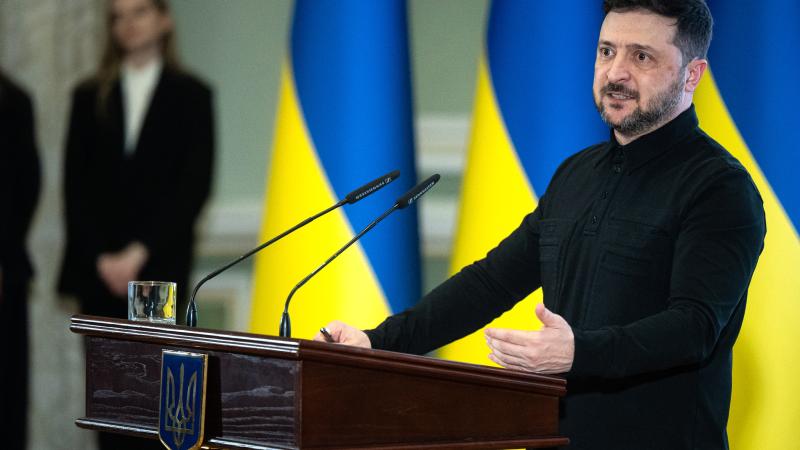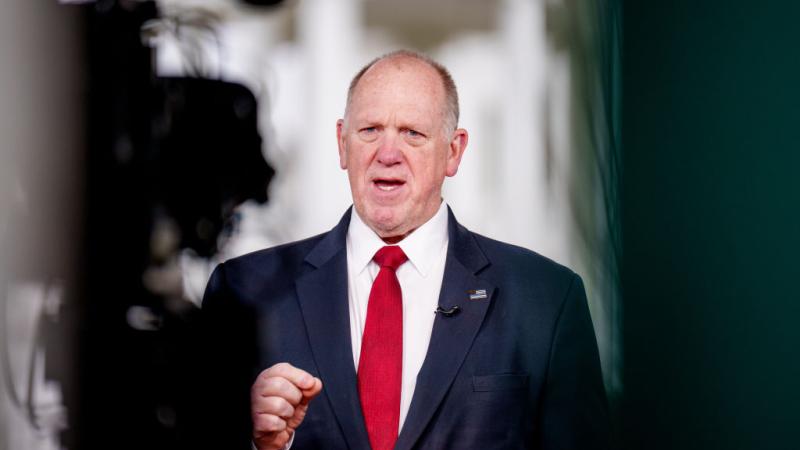Gorbachev’s quest to save Soviet communism ended it; his choice to eschew force reshaped the world
Former Soviet leader's death evokes fond memories of his partnership with Ronald Reagan to end the Cold War, stark contrasts to Putin.
Like many of history's greatest figures, Mikhail Gorbachev was as imperfect as the trademark birthmark he sported on his scalp. A lifelong communist, Gorbachev's efforts to preserve the Soviet Union through reform programs known as Glasnost and perestroika only accelerated its demise. But when faced with that reality, the Soviet Union's final ruler consequentially chose not to extend one of the most tyrannical regimes of the 20th century through force.
Instead, he pragmatically engaged to reduce the threat of nuclear war, befriended his one-time adversary Ronald Reagan, presided over the reunification of Germany and facilitated the peaceful dissolution of the Soviet Union in a manner that transformed Europe for the onset of the 21st century.
Gorbachev died Tuesday at the age of 91 after a long illness in Moscow, where the shadows of Vladimir Putin's bloody conquest in Ukraine provided a stark contrast to the man affectionately known to the world in his post-Soviet life as Gorby.
The contrasts between Gorbachev's and Putin's respective reigns were abundant Tuesday evening as accolades and remembrances poured in from across the globe.
"One of the phrases I've used a lot in recent years as we've been approaching potentially transitioning states is I'm not going to be looking for a George Washington, but I could really use a Gorbachev,” former Deputy National Security Adviser Victoria Coates told Just the News. "Because when Mikhail Gorbachev faced the inevitable disintegration of the Soviet Union, you know, he had the pragmatism to make a deal with Ronald Reagan and try to come to some kind of arrangement for an orderly transition away from the Soviet system."
Reagan, the communist-hating American capitalist warrior, made Gorbachev's success possible by giving the Soviet leader the room to make hard decisions and the support to weather internal strife — a domestic vulnerability fully manifested later in the form of a failed coup attempt during the administration of Reagan's successor, George H.W. Bush.
Some see missed opportunities during the U.S. administrations that succeeded the Reagan-Bush years to navigate the former Soviet states toward lasting democracy, capitalism and freedom, failures that contributed instead to the rise of Putin's empire-building, freedom-crushing ambitions.
Coates said "the shame is many of us in the United States were not taking full advantage of" the pragmatism Gorbachev initially instilled in Eastern Europe after the Berlin Wall fell.
"Barely a decade later, we had Putin come to power," she added. "We did not manage that well."
Gorbachev "gave Russia a chance at democracy by opening the door to the truth about Soviet history," said Evelyn Farkas, executive director of the McCain Institute and a former Defense Department official.
"Putin has worked increasingly hard to shut that door and rehabilitate Stalin," Farkas tweeted, echoing the sentiments of many on social media. "Let's hope the spirit of Gorbachev guides the next set of Russia leaders."
Gorbachev in his later years was immortalized and rewarded for his lasting impression on history, from a Nobel Peace Prize to lucrative speaking tours. But his legacy will forever remain mixed in the former Soviet republics, especially Ukraine.
He presided over the Chernobyl nuclear disaster in Ukraine in 1986 and was blamed for allowing soldiers and civilians to return too early to the region by lying about the safety of the radiation fallout, a legacy darkly captured in a recent HBO movie.
Decades later, he managed to disappoint Ukrainians again when he embraced Putin's 2014 invasion and annexation of Crimea, a move that got him banned from Ukraine. Those memories never fully faded from Europe.
"He helped cover Chernobyl disaster, he ordered tanks on peaceful protesters around USSR, he supported Putin and his politics, he saluted annexation of Crimea," European symphony conductor Dalia Stasevska tweeted on Tuesday. "When you write about great champion of freedom, you don't know what you're talking about. He was a criminal."
History will forever debate the Gorbachev legacy — its dark side and its brightness — but those who engaged the final Soviet leader in his most consequential years of 1986 through 1992 remember a man who proved true to his word and able to navigate the reality that the Soviet empire entrusted to him was irreversibly crumbling, giving way to the forces of democracy and capitalism. And his decision not to resist that demise proved his greatest achievement.
"History will remember Mikhail Gorbachev as a giant who steered his great nation towards democracy," said James A. Baker III, who dealt with the Soviet leader as Reagan's White House chief of staff and Bush 41's Secretary of State. "He played the critical role in a peaceful conclusion of the Cold War by his decision against using force to hold the empire together.
"I found him to be an honest broker and could count on his word despite domestic pressure in Moscow. The free world misses him greatly."
Former Obama Ambassador to Russia Michael McFaul said it was "hard to think of other individuals who changed the course of world history in a positive direction more than" Gorbachev.
Gorbachev did much in his later years to shed the stain of his communist past, even recording a hysterical commercial in 1998 about Pizza Hut's arrival in Russia.
He encouraged peace throughout the world on most occasions, Crimea aside, and saluted his most unlikely partner in the dissolution of the Cold War: Ronald Reagan.
When America's 40th president famously urged "Mr. Gorbachev, tear down this wall," the Soviet leader did not retreat. He engaged on nuclear weapons and allowing Western capitalist brands and freedoms to enter his empire. The two men developed a fondness and trust that served history well, a dynamic Gorbachev heralded when he traveled all the way to Washington in 2004 to salute the passing of his most unlikely friend.
Reagan "was a hawkish person," Gorbachev recalled on the sidelines of the former president's funeral 18 years ago. ''What is more, he said that he regarded the Soviet Union as an evil empire. But he had the foresight and the wisdom and the commitment to step over all of that, and start changing relations with the Soviet Union. We had the same wish, and we were able to do that."















